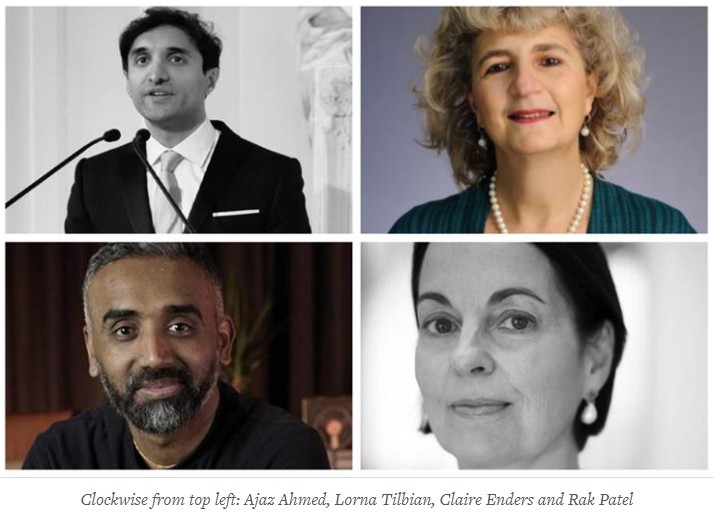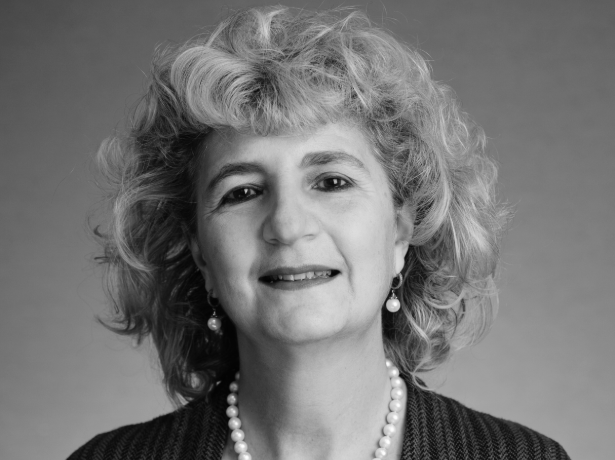Campaign magazine: What does WPP need from its next CEO?

In this recent article in Campaign magazine, Lorna Tilbian joins other industry experts with her thoughts on the changing of the guard at the very top of WPP. The full article which was published on 12 June follows, with thanks to Campaign for their permission to republish here:
What does WPP need from its next CEO?
Mark Read announced he was stepping down as WPP’s chief executive, and speculation sparked around the whole world about who will lead the next era of the holding company.
WPP has been through many changes in Read’s seven-year tenure at the top, but has been criticised for being too “slow”.
Campaign’s editor-in-chief Gideon Spanier wrote: “Read spent too much time on endless internal simplification and killing off famous agency brands, rather than focusing relentlessly on the client offer and winning market share.
“It was fair to give Read some time to simplify and modernise the group after Sorrell left, amid declining revenues, but the restructuring never seemed to end.”
With the recent amalgamation of WPP agencies – Grey and Ogilvy, T&Pm, VML, and now WPP Media – some call into question, including analyst and advisor Lorna Tilbian, whether the sum of the parts is worth more than the whole. Could adland see a divestment of WPP or sale to private equity?
Ajaz Ahmed, former chief executive and founder of AKQA, which was acquired by WPP in 2012, agreed. He added that the next chief executive must “break the cycle of endless reorganisations”.
Financial integrity is a must, said analyst Claire Enders, adding “it’s a management task” first and foremost.
AI may be the great decider for the entire industry, and how an agency and its leader will find its fit in this age could determine its future.
While Read’s legacy may appreciate in time, opined Ian Whittaker, the question remains: who will be the leader to turn things around?
Lorna Tilbian
Chair, Dowgate Capital
Aside from the wisdom of Solomon and the patience of Job, the new chief executive – only the third in the company’s 40 year history – will need to set out a new strategy, vision and purpose fit for the AI age. With a geopolitical and macroeconomic background as bad as I have known it in 40 years of daily observation, he or she will need to be a man or woman of grit and steel with the imagination and insight to transform the business and crystallise the inherent shareholder value.
The view in the Square Mile is that the sum of the parts is worth more than the whole so he might well contemplate a break-up or perhaps a sale to private equity. After all, the mighty Morrisons succumbed to PE on the appointment of its third chief executive in its 100-year history. And, strangely, the decline and fall of WPP from the world’s number one to number four (post the planned Omnicom/IPG merger) began with PE leadership at the top…
Ajax Ahmed
Founder, Studio.One
WPP doesn’t need an opportunist or a political tactician. It needs an architect who serves the company, not their own power base. For too long, management has prioritised control, centralisation and consolidation at the expense of institutional renewal and accountability.
The next chief executive must break the cycle of endless reorganisations and offer a clear aspiration, underpinned by a credible investment thesis. That means crystallising the latent value of WPP’s vast portfolio and the willingness to unlock it through bold divestments. The current fixation on AI optics over outcomes has become a distraction from true fundamentals: an energetic culture, winning clients, and protecting margins.
Claire Enders
Founder, Enders Analysis
[WPP’s next chief executive needs] a global vision of the advertising industry and its drivers and challenges. [They need] deep experience of managing and serving unique multinational clients of global stature, credibility with the City and the global advertising community. Financial integrity and experience are a must – it’s a management task number one.
[They have] to come from a large (50,000 employees plus) organisation that is similarly driven by talent, and must be able to navigate technology and create imaginative partnerships with technology companies.
A single-minded focus on enhancing the company’s undoubted strengths and motivating the talent running the major divisions is essential.
Rak Patel
Chief commercial officer, Channel 4
[Read] inherited a tough brief: take a founder-led company, follow a big personality and reshape it for a new era. Many businesses falter after a founder steps aside, but [Read] brought calm, clarity and conviction. He streamlined WPP’s network, embraced technology, and built a suite of products that speak to the needs of the modern marketer. That’s no small feat in an industry that’s constantly evolving. His leadership has been thoughtful, focused, and quietly transformative. As he moves on to new challenges, I want to thank him for his vision and wish him every success in what comes next.

